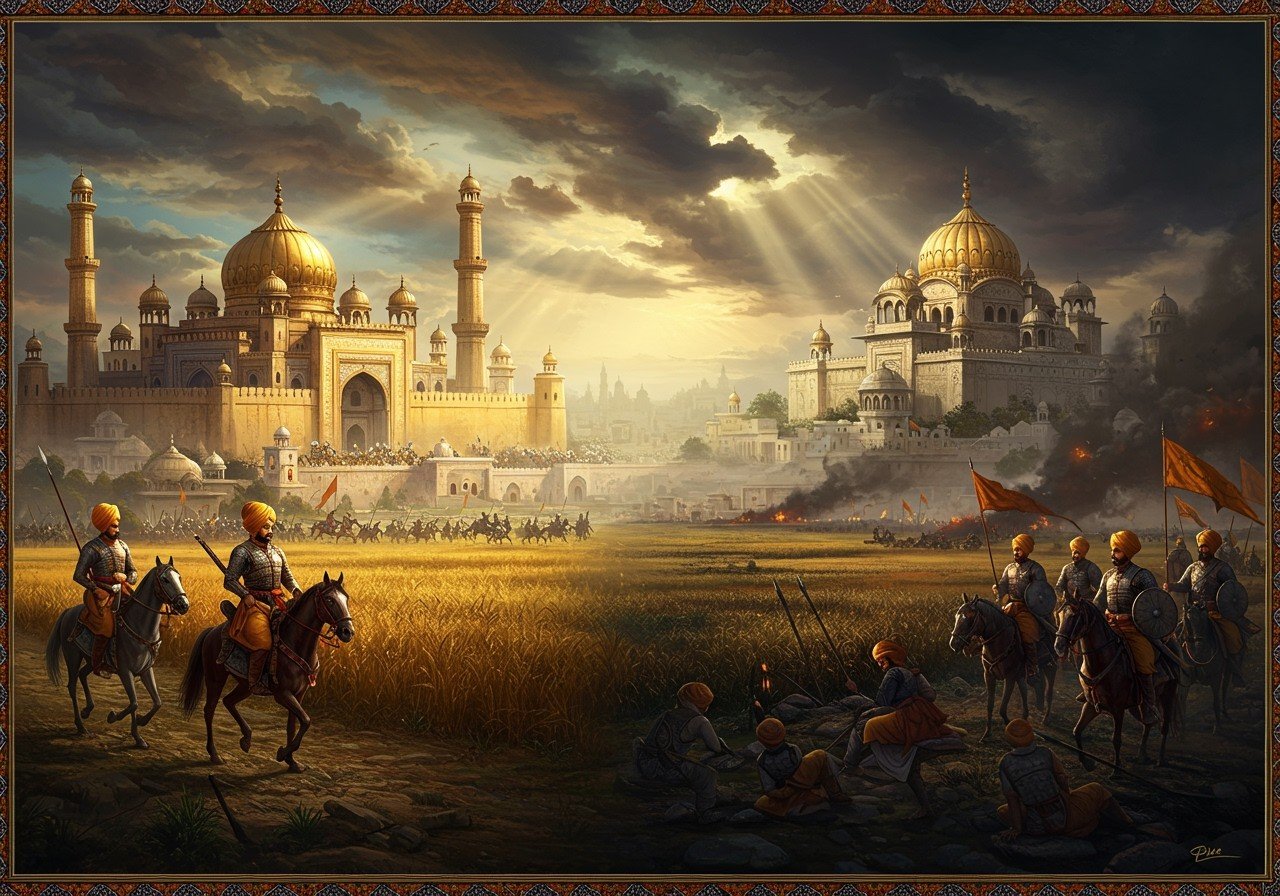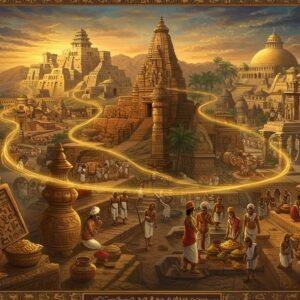
Punjab, a region spanning modern-day India and Pakistan, boasts a captivating history. This article delves into Punjab’s trajectory from the 14th century onwards, highlighting key events, cultural transformations, and influential figures. This exploration holds particular relevance for those who cherish tradition and cultural heritage, especially middle to upper-middle-class Indians who value authentic rituals and appreciate the ease of online shopping.
Setting the Stage: Punjab in the 1300s
The history of Punjab in the 1300s is intertwined with the broader historical narrative of the region. Its ancient roots trace back to the Indus Valley Civilization (3300-1300 BCE), renowned for its sophisticated urban planning and architecture, as seen in sites like Harappa. By the 1300s, Punjab had witnessed numerous invasions, including those by Muslim conquerors like Mahmud Gori and Mahmud Ghazni. This period was a crucible of cultural and geopolitical shifts, profoundly influenced by these incursions.
The Dawn of Sikhism (15th Century)
Sikhism emerged in Punjab during the 15th century. Guru Nanak, the founder of Sikhism, emphasized equality, selfless service, and resistance to oppression. His teachings, carried forward by subsequent Gurus, led to the establishment of significant Sikh institutions like the Harmandir Sahib (Golden Temple) in Amritsar. Sikhism profoundly shaped Punjabi society, fostering a distinct cultural identity.
The Mughal Imprint (16th – 18th Centuries)
The Mughals held sway over Punjab from the early 16th century. Pivotal battles, such as the Battle of Panipat, solidified their control. Their architectural influence is evident in the forts, palaces, and gardens they constructed, reshaping the region’s landscape. Mughal administration ushered in socio-economic changes, including land reforms and expanded trade networks.
The Rise and Fall of the Sikh Empire (Early 19th Century)
Under Maharaja Ranjit Singh in the early 19th century, the Sikh Empire experienced expansion. Ranjit Singh spearheaded military campaigns and administrative reforms, unifying various regions within Punjab. This era witnessed a cultural resurgence, marked by patronage of the arts and architecture. The Sikh Empire’s decline following Ranjit Singh’s death paved the way for British annexation.
The British Colonial Period (Mid-19th Century Onwards)
British colonial rule left an indelible mark on Punjab from the mid-19th century onwards. Events like the Anglo-Sikh Wars cemented British control. British policies introduced modern education systems, infrastructure development, and agricultural transformations. Punjab played a pivotal role in the Indian independence movement, with significant contributions from freedom fighters.
Partition and the Post-Independence Era (1947 – Present)
The Partition of India in 1947 had a devastating impact on Punjab, resulting in mass migrations and communal violence. Post-independence, Punjab underwent socio-political changes, including land reforms, industrialization, and the Green Revolution. While challenges like militancy, economic disparities, and environmental concerns emerged, Punjab demonstrated resilience and cultural revival.
A Tapestry of Cultural Heritage
Punjab’s cultural heritage encompasses music, dance, festivals, and cuisine. Traditional art forms like Phulkari embroidery and Punjabi poetry hold special significance. The Punjabi language and literature serve as repositories of the region’s cultural identity, while the Punjabi diaspora actively promotes Punjabi culture globally.
Poojn.in: Your Gateway to Punjab’s Spiritual Legacy
Poojn.in, India’s leading cultural goods and services store, offers a wide array of products to connect you with Punjab’s rich spiritual heritage. Explore our collection, which includes:
- Sacred Texts and Literature: Delve deeper into the spiritual wisdom of Punjab with our collection of religious texts. Discover more.
- Traditional Attire: Embrace the cultural elegance of Punjab with our selection of traditional clothing and accessories. Explore our range.
- Ritual Items: Enhance your spiritual practices with authentic ritual items sourced directly from Punjab. Find what you need.
- Home Decor: Adorn your home with culturally inspired decor that reflects the beauty of Punjabi traditions. Browse our collection.
- Devotional Music: Immerse yourself in the soulful melodies of Punjabi devotional music. Listen and connect.
Visit poojn.in today to explore our complete collection and enrich your connection to Punjab’s vibrant cultural heritage.
Explore more about Mukteshwar Mahadev and other spiritual journeys on our blog:
- Mukteshwar Mahadev Temples: A Spiritual Journey Across India
- Mukteshwar Mahadev, Pathankot: Your Trip Planner – Essential Tips and Insights
- Mukteshwar Mahadev: A Spiritual Journey – Rituals, Offerings, and Divine Connection


